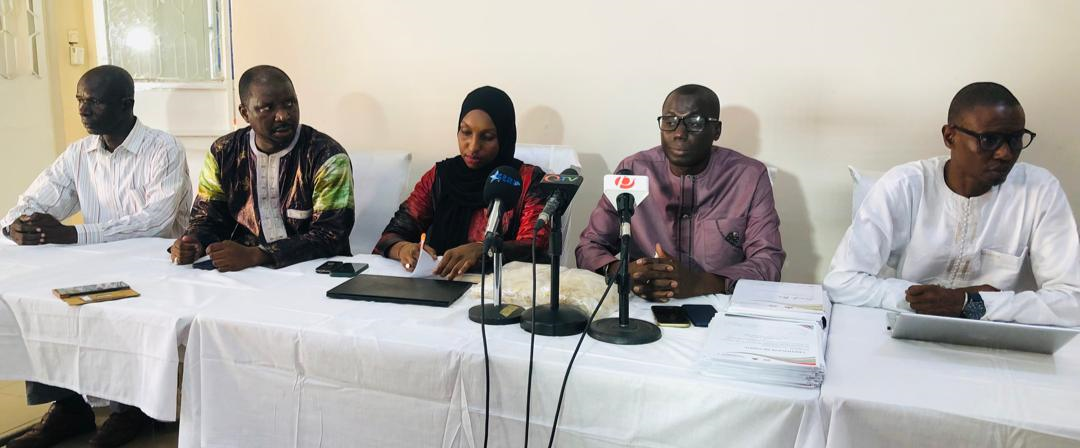The Gambia has been identified to host the Regional Steering Committee Meeting and the 8th ACE Impact Regional Workshop in November 2022. This decision was initially taken at the Regional Steering Committee Meeting and was later announced at the closing ceremony of the 7th Regional Workshop in Cotonou, Benin.
The Meeting was attended by the Permanent Secretary of The Ministry of Higher Education, Research, Science and Technology (MoHERST), Mr Mod AK Secka, who doubles as the Regional Steering Committee Member A, the Deputy Permanent Secretary (Technical) of MoHERST Dr Yusupha Touray, who is also the National Focal Point for Gambia ACE Impact, the Project Manager of PCU, Mr Abdoulie Sowe and other staff of PCU and USET.
The Africa Higher Education Centres of Excellence, Impact for Development (ACE Impact) is an ACE I successor Project, which is meant to build the capacities of African Universities to take ownership of Africa’s socio-economic development.
Under ACE I, the country was selected to buy services from the ACEs, and focussed its grant funding on faculty development, targeting staff of the University of The Gambia, Gambia College, and Gambia Technical Training Institute. Each of these Institutions had more than ten (10) staff on average, trained in the Engineering, Agriculture, Computer Science, Mathematics, Statistics, Nursing and Public Health disciplines.
The training was also expanded to include other government ministries, departments, and agencies, with a focus on National Planning and ICT cadres, which were considered critical to the Gambia’s national development agenda. Those trained at GTTI in the engineering disciplines are now doing their PhD at Kwame Nkrumah University of Science and Technology (KNUST) and are being mentored to take up the teaching and research at the new university towards the end of the ACE Impact Project.
In the Second ACE, emphasis is on Development Impact, and The Gambia has chosen to establish an Emerging Centre on Science, Technology and Engineering for Entrepreneurship (STEE). This model of education streamlines the entrepreneurship mindset into science, technology and engineering programmes in a bid to graduate potential job creators, who studied concepts and principles with the view of transforming those concepts and principles into business models. The involvement of De Montfort University (DMU) is to facilitate this process. This will also initiate the GTTI transformation process by starting with three engineering programmes at the degree level, while strengthening the certificate and diploma programme, especially in civil, mechanical and electrical/electronic engineering. The Gambia’s Emerging Centre hosted by the USET is already running two engineering cohorts in Bachelors of Science Degrees (Bsc).
It may be recalled that The Gambia hosted a similar Regional Steering Committee Meeting and a Regional Workshop in 2015, which brought together ACE I participants from the World Bank, Association of African Universities (AAU) and Centres of Excellence from West and Central Africa. That meeting had won the admiration of many participants all through the ACE I implementation period.
However, this time around, The Gambia is expecting participants from 53 Centres of Excellence, from 11 West African Countries and Djibouti, as well as participants from the AAU, the World Bank and other development partners. The meeting will also invite Ministers of higher education and scientific research from all the participating West African countries and Djibouti.





